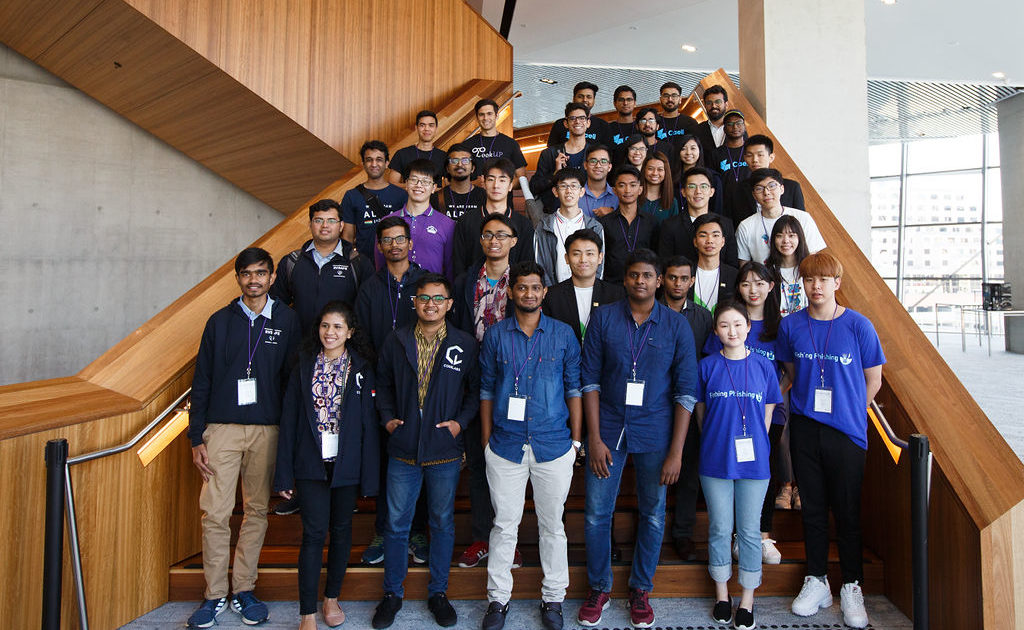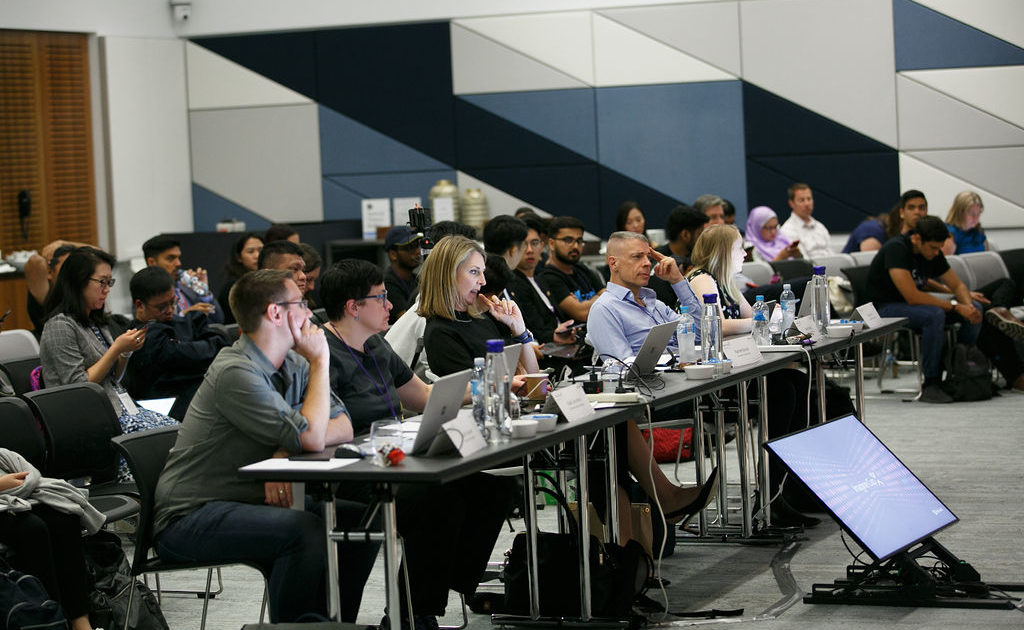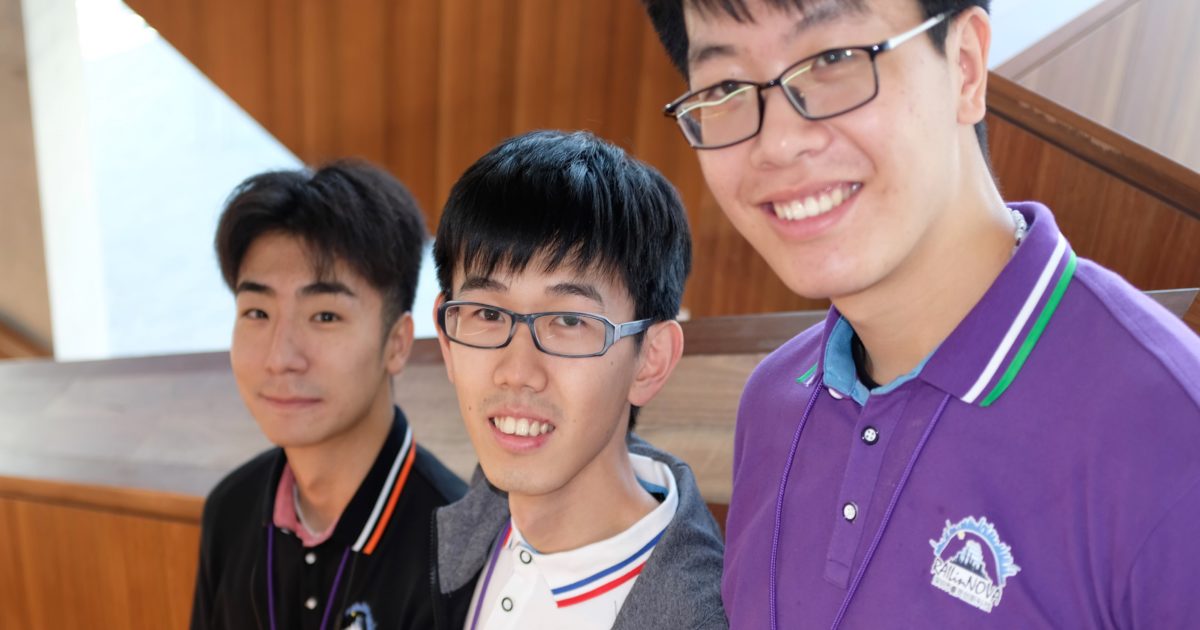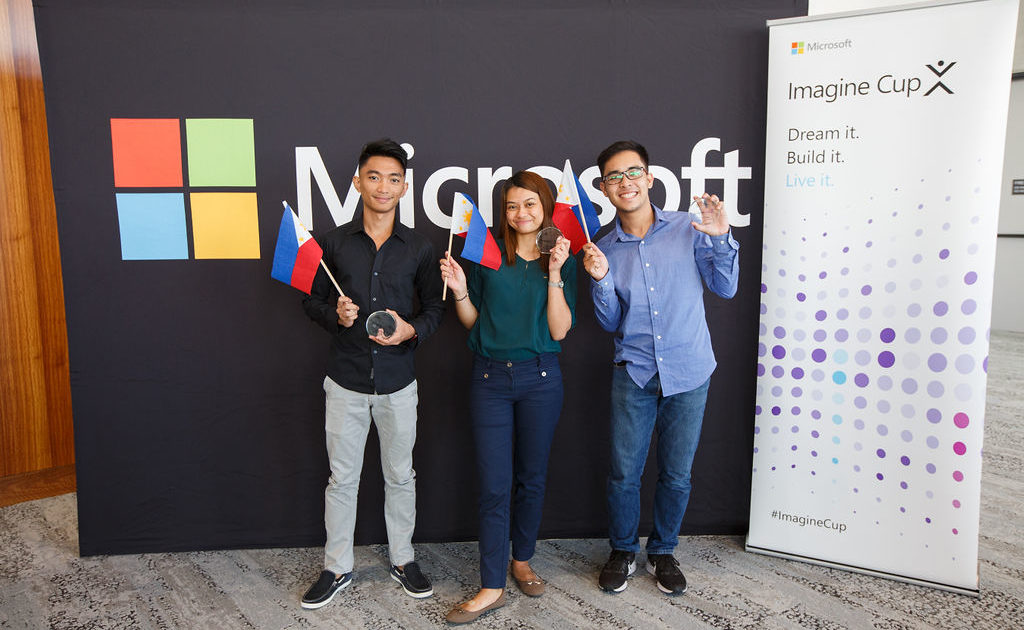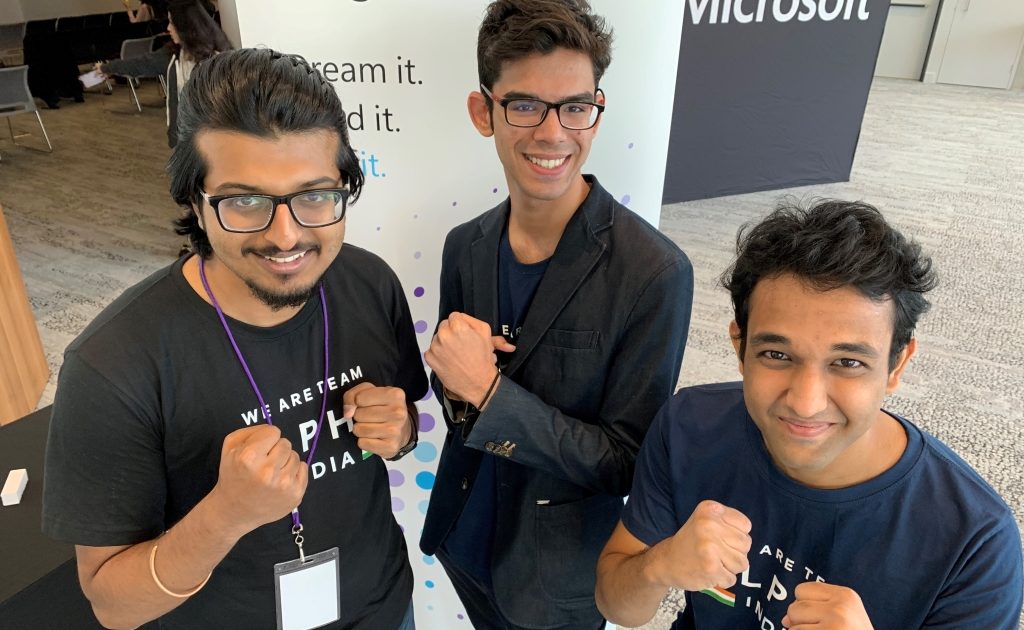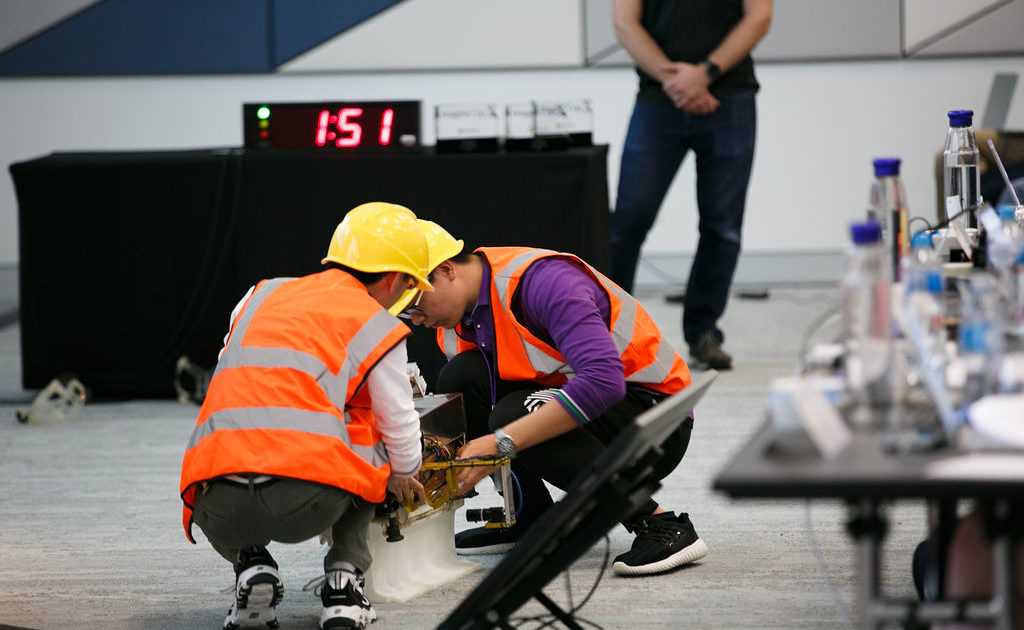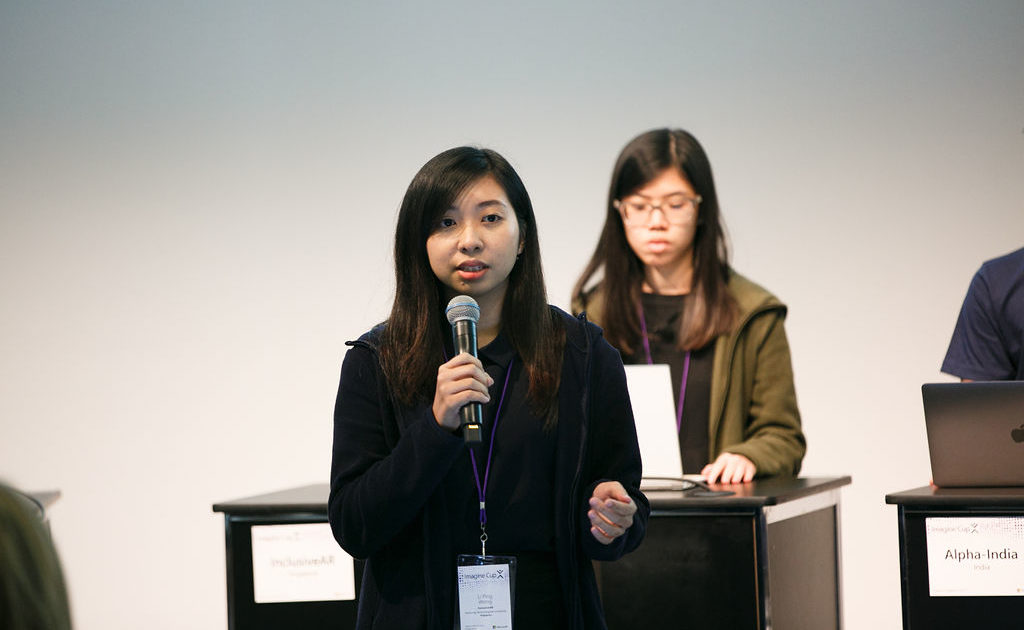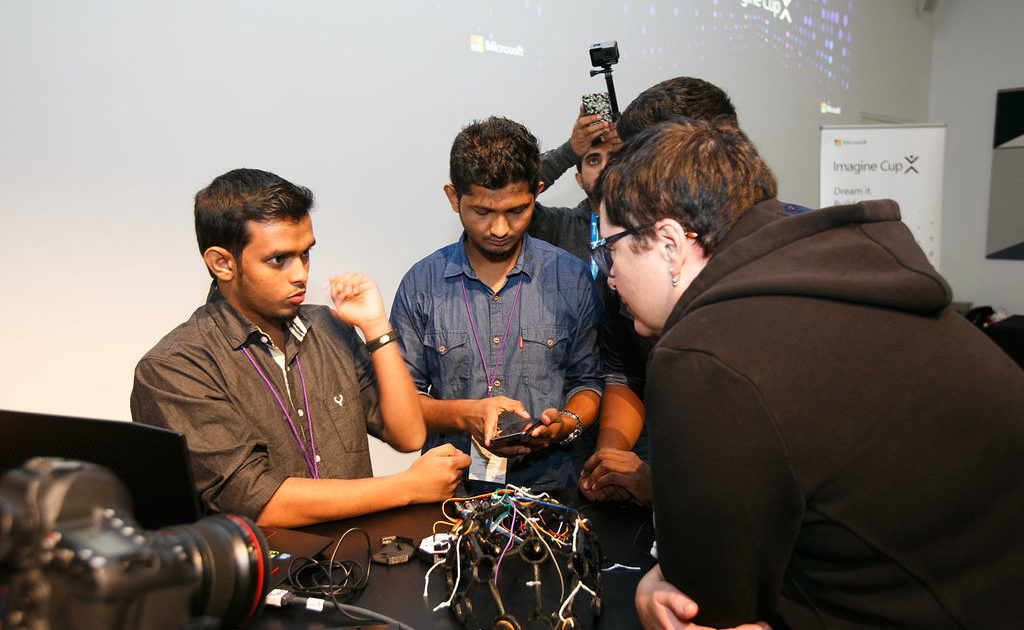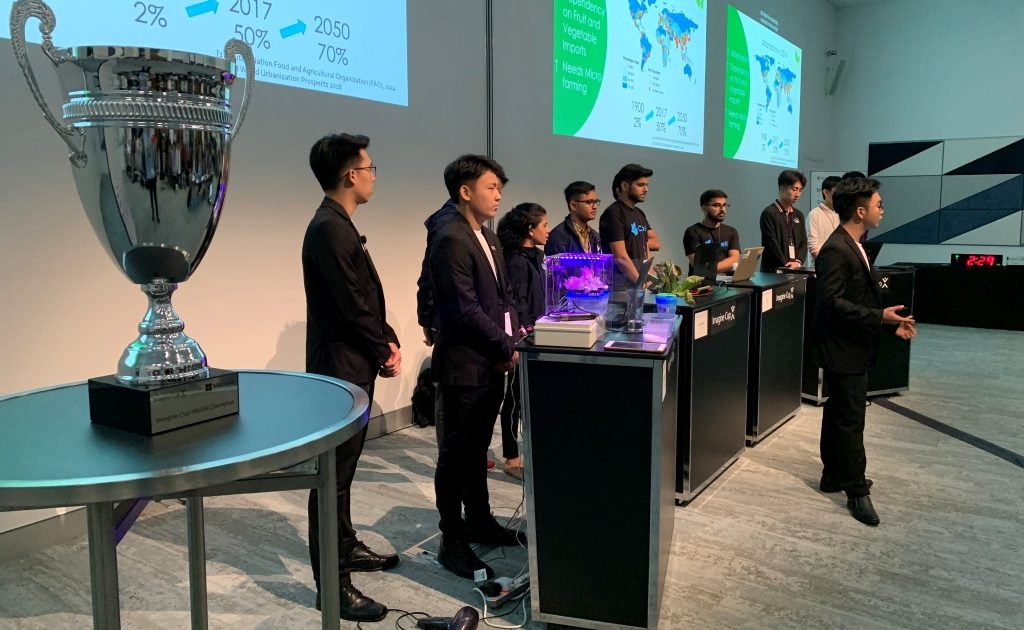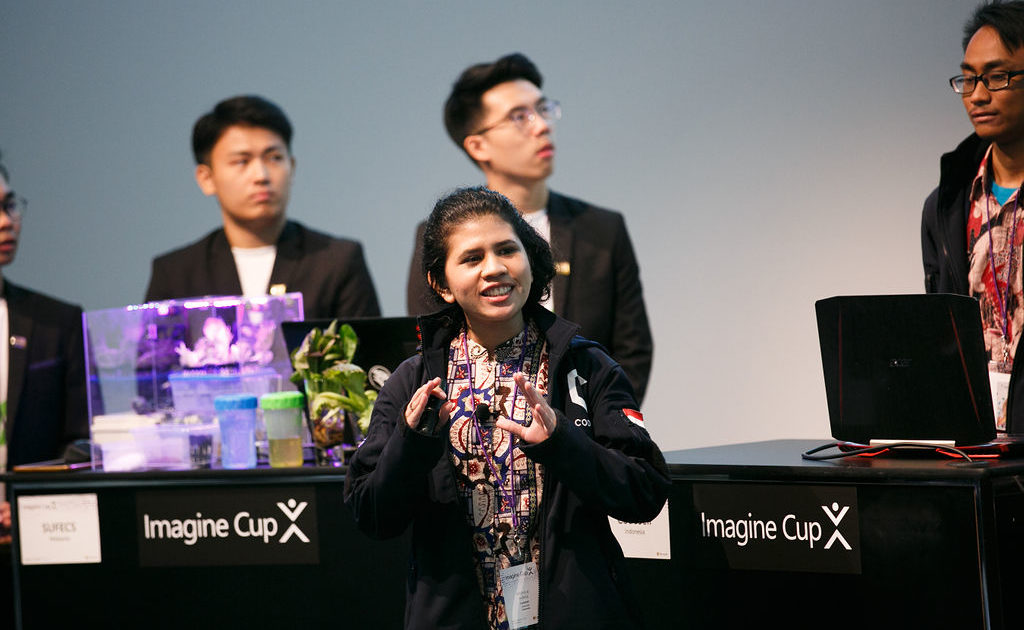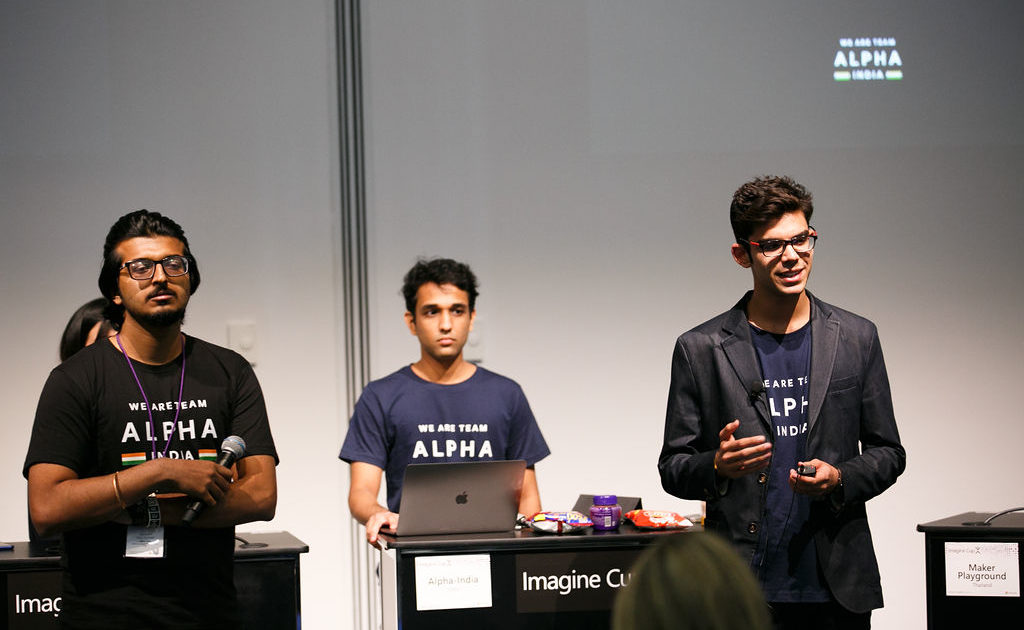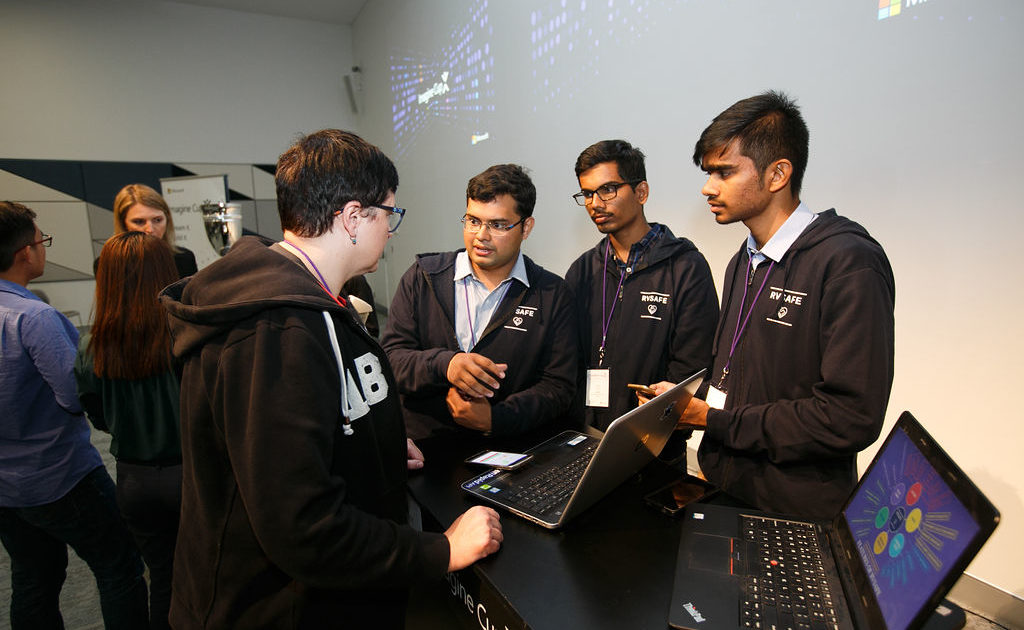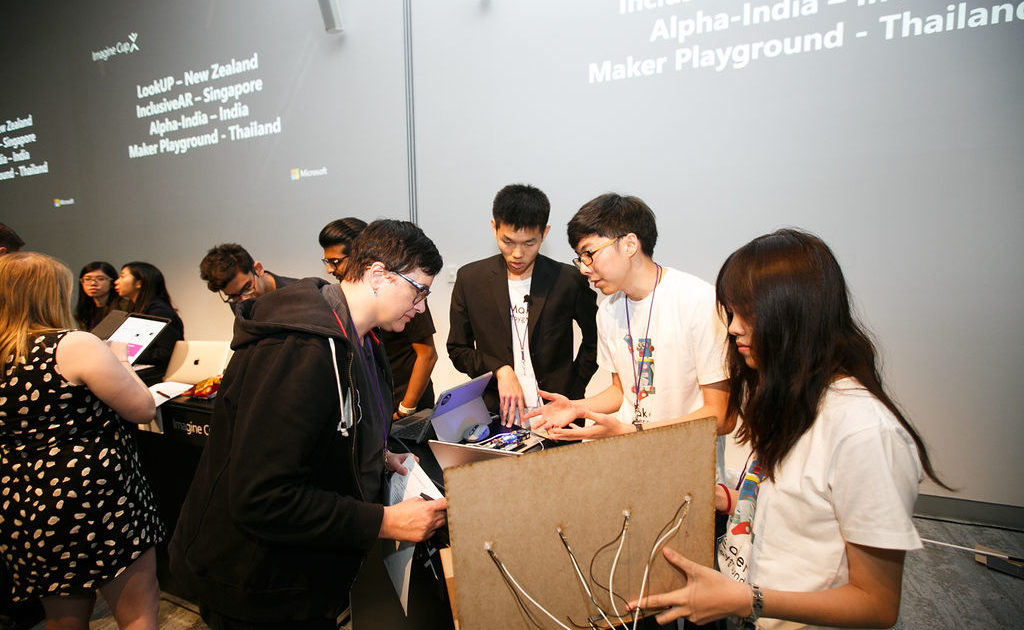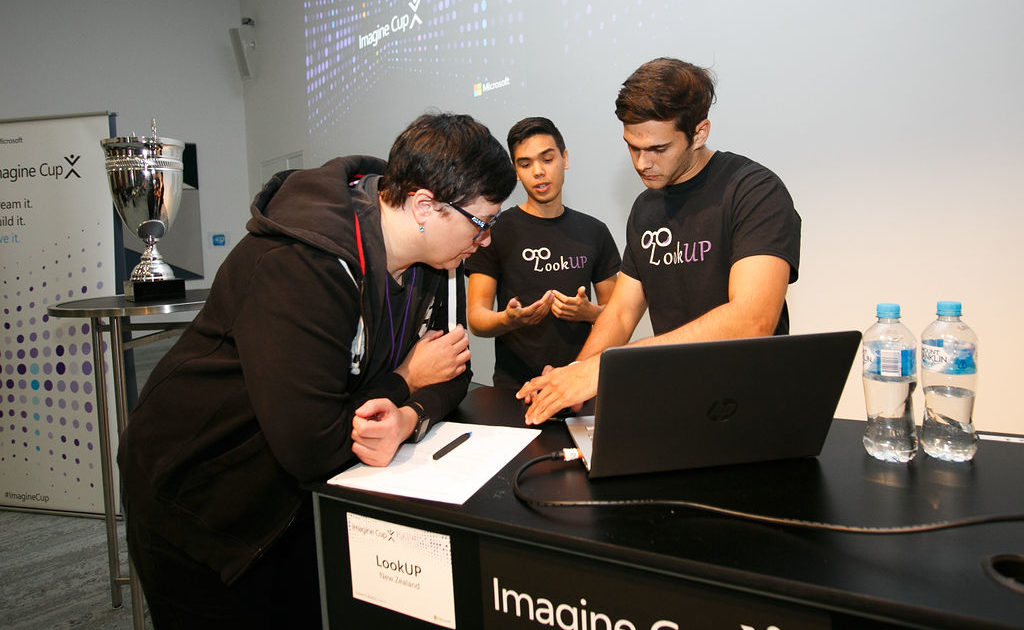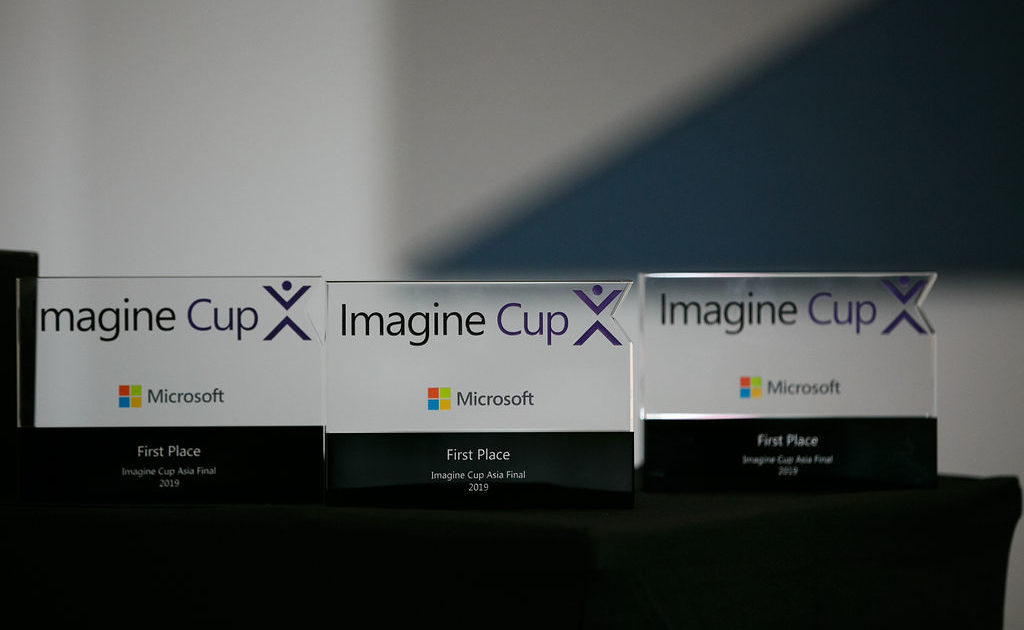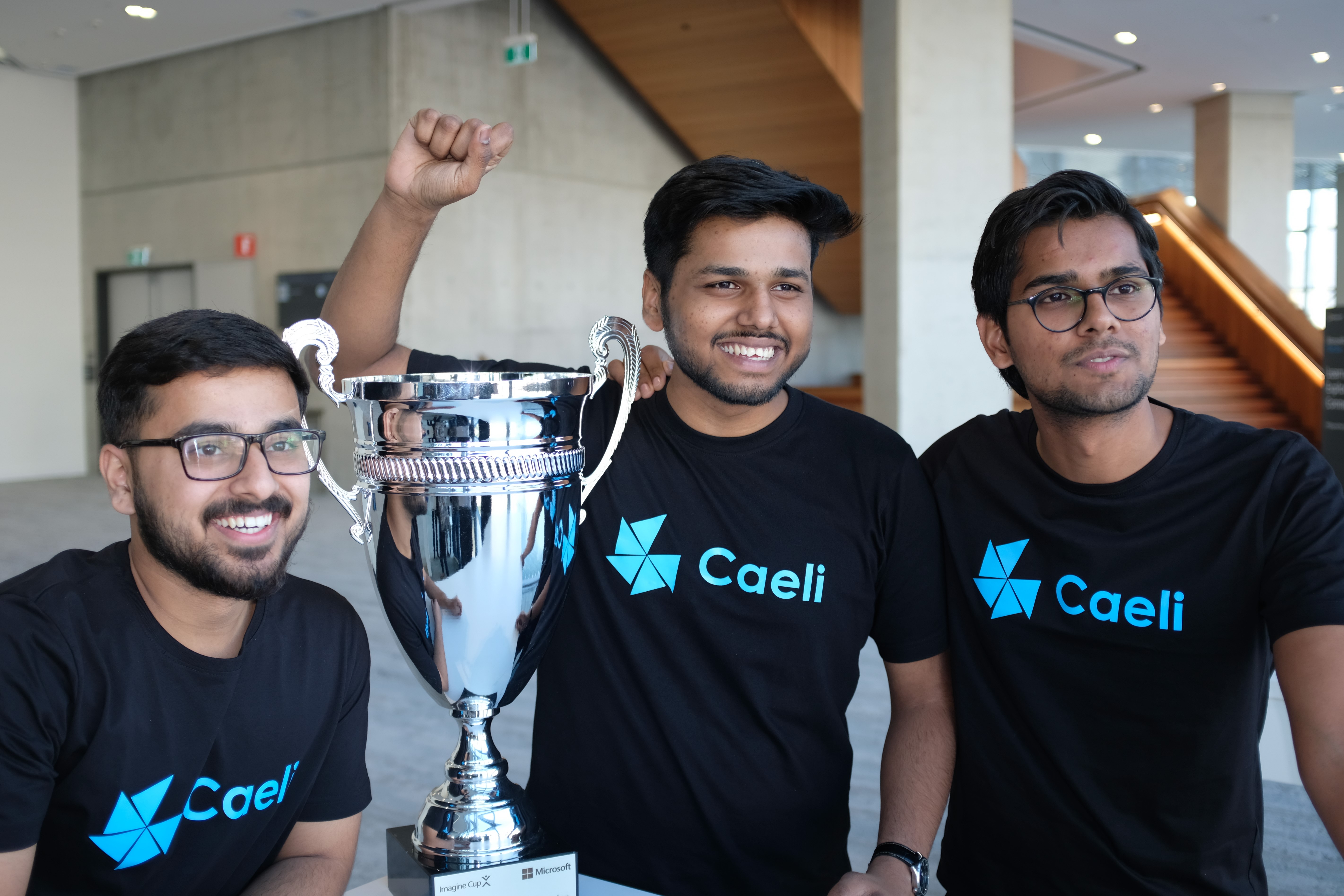
Imagine Cup: From students to technology’s next superheroes
Asia's best and brightest take on some of society’s biggest challenges
Imagine this: A problem impacts you, or maybe your family, your friends, your community, your country, or even the whole world. You and your student peers form a smart and passionate team that not only thinks up a great solution – it also accesses amazing new technologies to make that fix a reality.
You work hard, collaboratively, and creatively for months. Along the way, you get high-powered technical and practical advice on how to refine your solution, start a business, win over investors, and bring in customers. Having learned and achieved much along the way, you come together and compete with other great teams from around the world and face expert judges who are eager to hear about the next big thing.
Welcome to Imagine Cup: an annual global student competition akin to a youth Olympics of technology. It’s prestigious, innovative, entrepreneurial, and impactful as a first step toward changing the world.
More than 2 million students from around 190 countries have competed in Imagine Cup since it started in 2003, including hundreds of thousands from across Asia Pacific. Using the latest technologies – which nowadays include artificial intelligence (AI), machine learning, the internet of things (IoT), and cloud computing – they have taken on some of society’s toughest challenges.
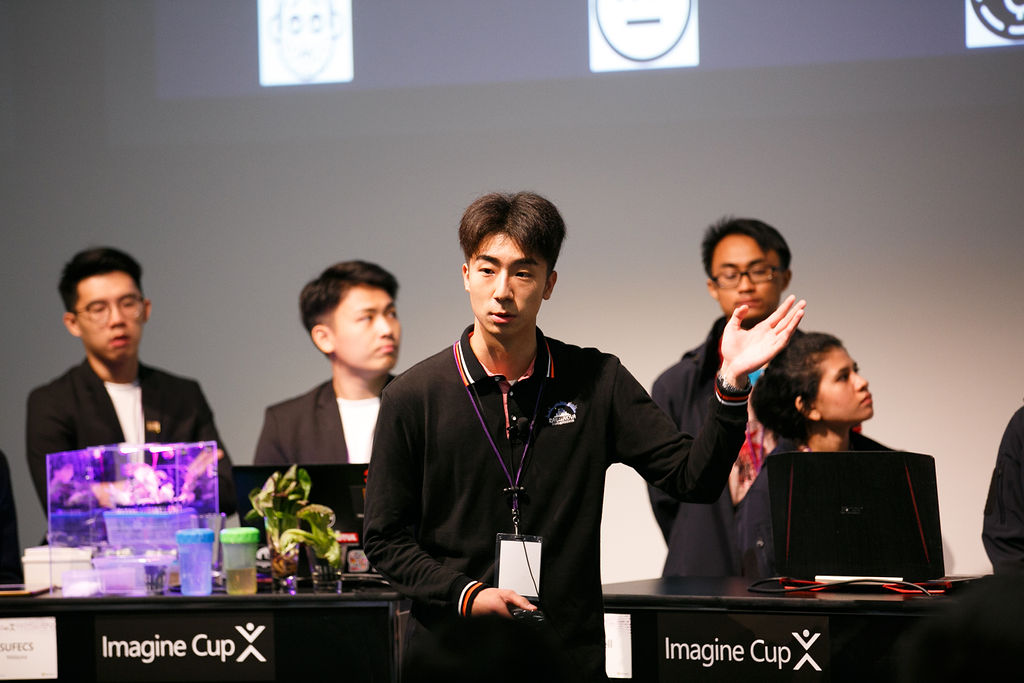
With the contest now in its 17th year, 12 teams of impressive young women and men from 10 countries converged on Sydney for its Asia regional finals. To qualify, they had to move through a series of online competitions and national playoffs that ran from late last year.
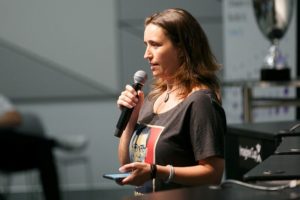
“You are all superheroes. You have done amazing work to get here,” Annie Parker, the Global Head of Microsoft for Startups, said in a welcome address made just before each team pitched their solutions to a panel of five judges.
“These are young people wanting to solve the world’s problems, wanting to take on the big issues, and they are not afraid of that at all,” says Jennifer Ritzinger, Senior Director of Microsoft’s Academic Ecosystems and Reactors, whose team manages the competition. “They understand it is about having the right idea, and the dream, and the passion.”
Underscoring the importance of Imagine Cup’s mission, the Asia finals in Sydney were held just before Ignite the Tour – a premier Microsoft event for tech professionals and developers.
What surfaced through a day of presentations and demonstrations by the students was a sophisticated, inspirational, and eclectic mix of solutions for all sorts of sectors from the environment to disabilities, business, transport, security and more.
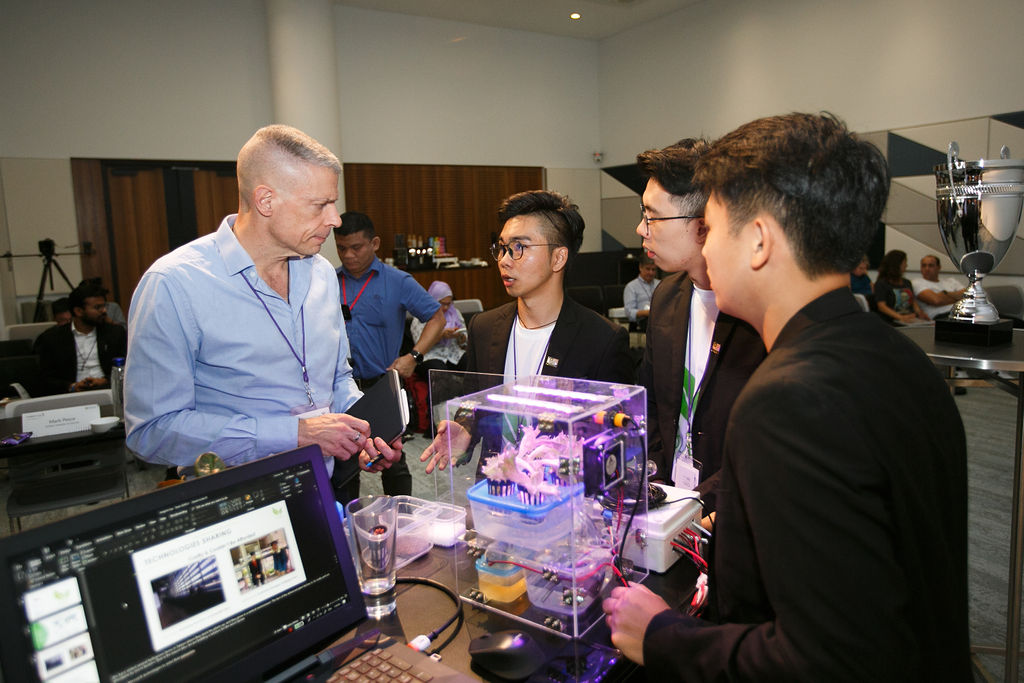
Among the entries were: an augmented reality solution for wheelchair users to navigate city streets (Singapore’s Team InclusiveAR); a social media sales tool to empower small businesses (Indonesia’s Team CodeSell); and a better way for people with dyslexia to use the internet (New Zealand’s Team LookUP).
READ more about each of the Asia Finalists here
Sri Lanka’s Team Straw Hats had a solution that reads the brain waves of people with debilitating neural disorders to help them communicate. Team Alpha-India created an augmented reality solution that discerns ingredients in packages foods while compatriots RVSAFE developed a one-stop communications and management solution to cope with natural disasters. Thailand’s Team Maker Playground came up with a software package to create IoT products.
“They all sat in a sweet spot where the technology, the application, and the thoughtfulness came together,” said futurist and entrepreneur Mark Pesce, who was on the jury.
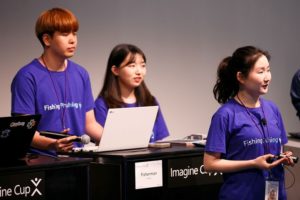
Some teams had personal reasons for deciding to tackle specific problems. For instance, the distress of friends and relatives losing money to phone scammers prompted South Korea’s Team Fisherman to create an app that has machine-learned voice analysis capabilities to detect suspicious cold calls.
Team SUFECS from Malaysia won the “People’s Choice Award” for developing a smart urban farming system that monitors and controls artificial environments best suited for growing crops in crowded cities.
Third-placed Team AidUSC from the Philippines wanted to help poor rural communities when they created an app that uses Azure Custom Vision to check the safety levels of water samples via a smartphone camera. Second-placed Team RalinNova of China came up with a robotic solution to automatically inspect train lines for defects with multi-sensor fusion capabilities.
The eventual winners, India’s Team Caeli, pulled their idea out of thin, or rather, polluted, air. Tired of choking on traffic fumes and industrial smog on their daily commute to their college in Delhi, they asked a simple question: If they were finding it hard to breathe, how were people with asthma and other chronic conditions coping?
At first, they launched a research project on air pollution, but soon decided “to develop a product to help all those patients who are suffering from respiratory issues and need it the most,” said team member Aakash Bhadana. They came up with #breathefreely – an AI and data-driven personal anti-pollution system that dispenses medications with the use of a smart face mask. They hope to launch their product to market by the end of this year.
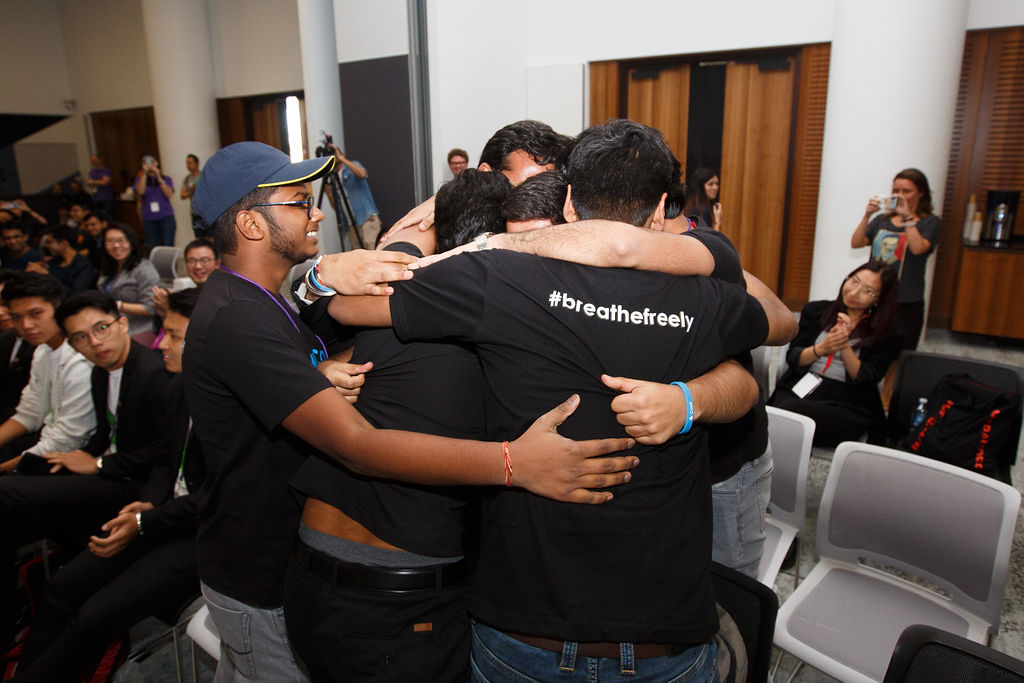
Team Caeli will represent Asia at the World Final at Microsoft’s headquarters in Redmond, near Seattle, in May. They will compete against the winners of two other soon-to-be-held regional finals for Europe, the Middle East, and Africa, and the Americas.
READ MORE: Imagine Cup Asia champs take on the world with Azure-driven anti-pollution mask
Ritzinger regards the global nature of Imagine Cup as one of its most valuable attributes. As well as bringing forward new ideas in the application of technology, the experience of competing internationally at such a high-level also changes the lives of participants who come from incredibly diverse backgrounds. Everyone is exposed to new ideas, viewpoints, and experiences that open new lines of communication and collaboration. “Some students have never been on a plane before. They have never had a passport before. They never thought that they could be so empowered.”
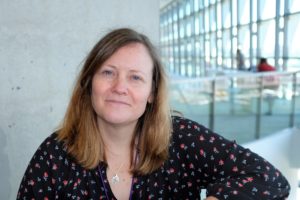
She and colleague, Keith Loeber, Director in Academic Ecosystems, work at the forefront of Microsoft’s investment in emerging talent through a series of student programs and initiatives. “We are really all about preparing students for the future,” Loeber says. “Imagine Cup gives them an opportunity to innovate on their own and to showcase that innovation. It is about empowering students to make that next great technology.
“We understand that today’s students are tomorrow’s entrepreneurs. They will also become technology decision makers. Whatever we can do to help make them better for tomorrow, we want to invest in that.”
Parker, who is also a former Imagine Cup judge, regards the competition as a wise long-term bet for the not-too-distant future. “If you invest in smart people – and give them the skills and the knowledge they need to build and innovate for themselves – they will become the startups of tomorrow,” she explains.
Today’s students are tomorrow’s entrepreneurs. They will also become technology decision makers.
From a Microsoft perspective, she says, today’s startups are tomorrow’s partners. “Think about this as one big funnel. We want to try to influence as many young people, developers, and students as possible to build on our platform, so that they can build skills, and then build future businesses that we will want to partner with.”

As Imagine Cup rises to new heights of excellence and achievement, the big game-changers are powerful AI tools that are now accessible almost everywhere.
“All the students coming into Imagine Cup have the capability of doing things that even five years ago we could never consider doing,” Loeber says. “Now a student can do it in their dorm room. The accessibility of AI is driving this kind of new technology that just wasn’t available to anyone before.
“We are seeing things coming through that will – in the next two or three or five years, or maybe even quicker – change our everyday lives. It is a really exciting time.”
Click through the photo gallery below.





